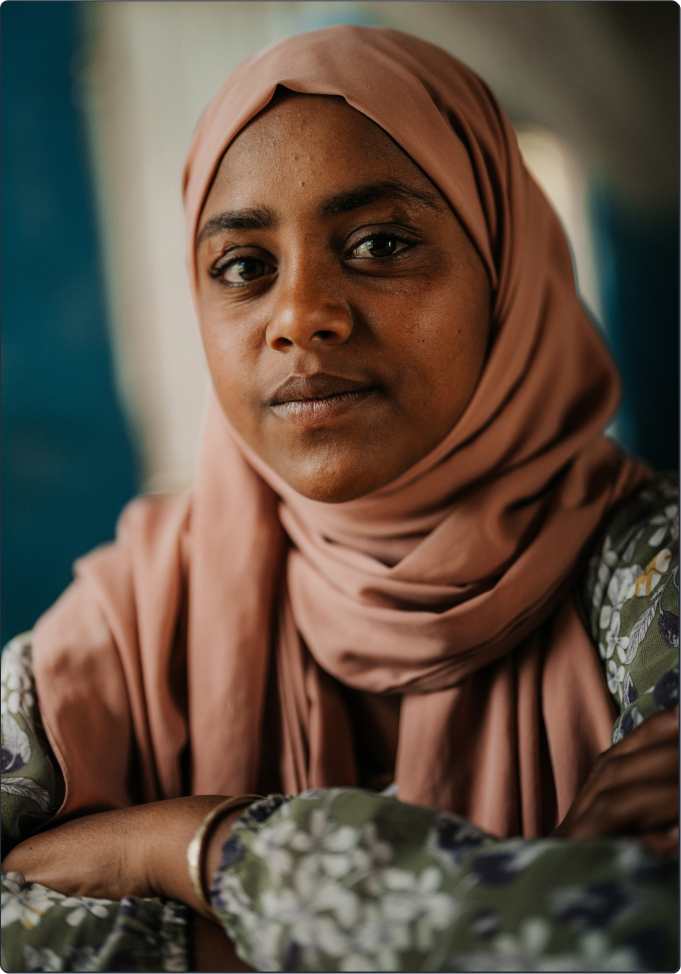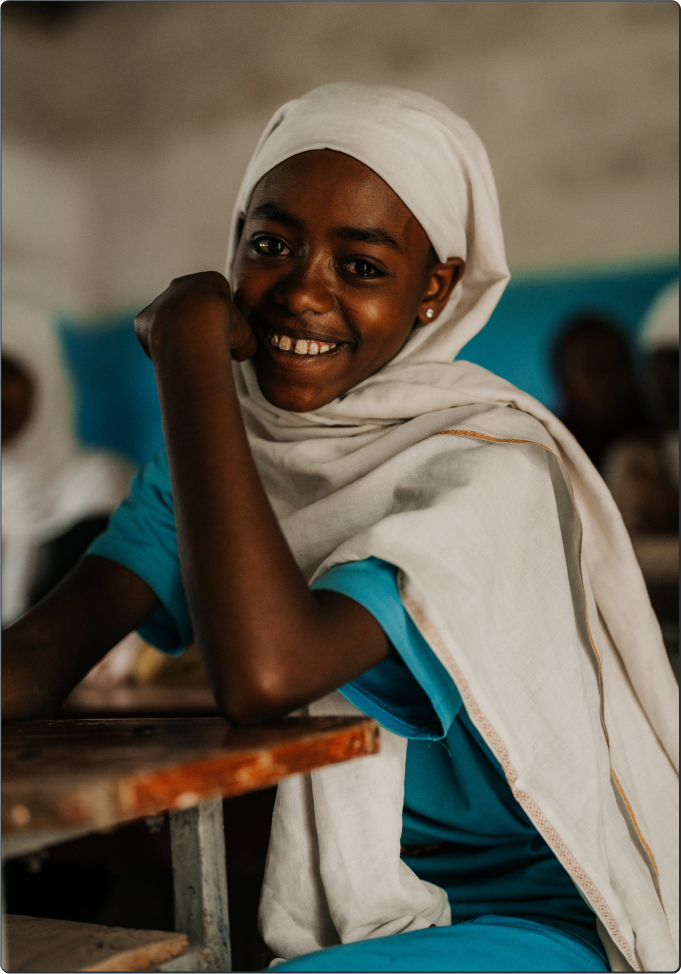For teenage girls in rural Ethiopia, going to school is a luxury. Especially after starting menstruation.

Meet Zabura (left) and Bilchate (right).
Zabura is in eighth grade, Bilchate in seventh. They live in a remote part of Ethiopia that is dependent on agriculture for income, where Islam is the dominant religion (94%), and where clean water is a rarity (only 22% of the region has it).
Drinking water is hard to find here. There’s no natural springs or streams or other sources that locals can use. Instead, they have to strap jerry cans onto their backs, or their donkeys, and walk for hours to the nearest source: a muddy riverbed with a long line. With no water filtration and also no proper sanitation at home, about one-third of the kids are habitually sick with waterborne illnesses.

“Collecting water took me 10 hours every day.”
Zabura shared this casually with me, seated in an empty classroom. She was beautifully dressed and kept fiddling with her hands while kindly answering our questions.
We were shocked… in all the places neverthirst works—from jungles of Cambodia to the desert of Chad—this was one of the longest walks for water we had ever heard.
She went on:
“It took me 3 hours to walk to the nearest water source [a muddy river]. Then I had to wait in line for 4 hours. Then carry the water back for 3 hours. That was my whole day.”
“We missed school for 3 days at a time while we went to hunt for water. So we only had 2 days a week to attend school.”

“Then, once I started my menstrual cycle, it became even more difficult. There were no bathrooms at school. There was no way to clean ourselves.”
So every month, Zabura, Bilchate, and other teenage girls would miss school—and miss being able to collect water for their families. While on their monthly cycle, they would rely on their brothers or other family members to collect water while they stayed at home. Waiting all day for the ability to be clean.
With water from a muddy stream.
At this point, most parents in this region would pull their teenage girls out of school. How can you be educated from attending school just a few days a week? The mothers need help collecting water, caring for their animals, and taking care of younger siblings. More pressing needs outweighed the gift of an education.


But clean water changes a teenage girl’s story.
“Two years ago, we began drinking clean water,” Zabura shared happily.
neverthirst began working in her region two years ago, with one of the first projects providing piped water to her school, proper bathrooms, and handwashing station.
Bilchate said, “Before, we were afraid of our menstrual cycle. But now, we have bathrooms. We are given pads to use. And we don’t have to spend hours away collecting clean water. Me and my friends go to school properly.”
I asked both girls what their favorite part of school was, expecting an answer like learning math or writing. Bilchate’s answer?
“We have toilets now.”


Pressing further, she shared her hopes to be a teacher one day. She loves learning from the teachers at school and dreams of getting to pass on her knowledge to the next generation.
And by giving her school clean water, those dreams might just come true.
We have a massive vision to expand clean water access from only 22% in this region to 90% over the next 5 years.
And we need your help.
Drilling here isn’t easy. There’s no natural springs and the groundwater is incredibly deep in the earth. Building water projects here requires special equipment, deep drilling, and complex solar-powered pumping systems.
But we believe these families—and this region—are worthy of clean water and hearing about the Living Water.
